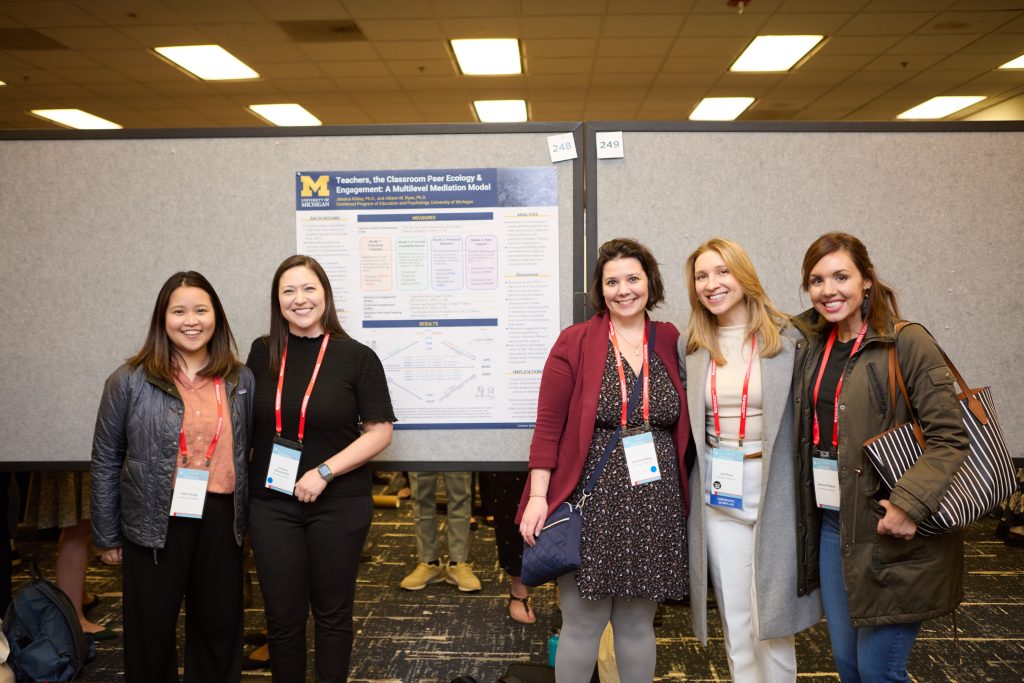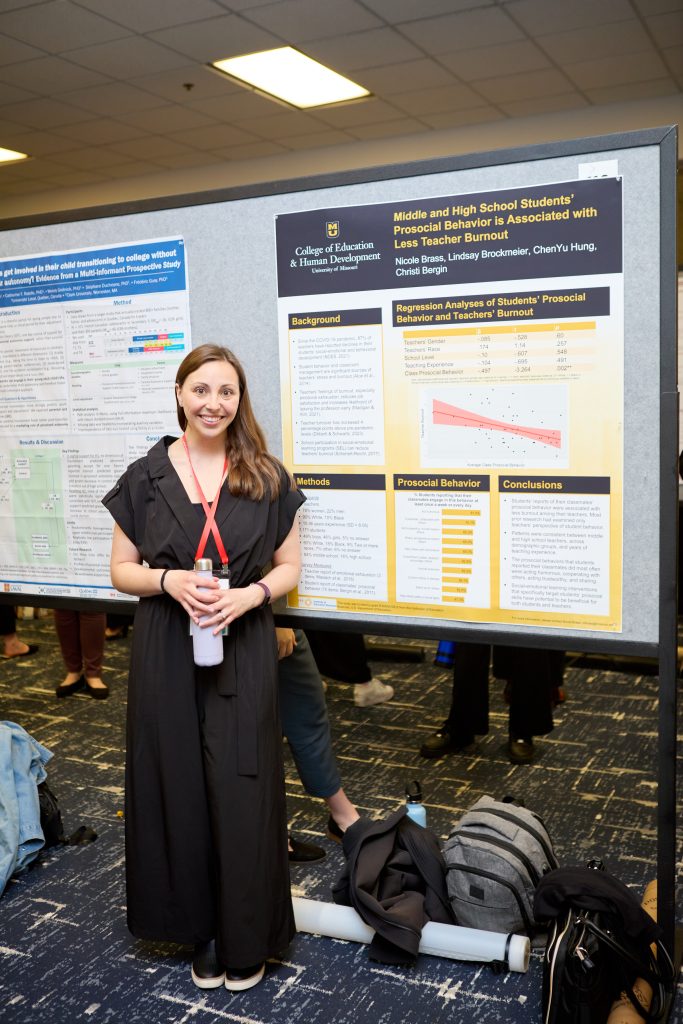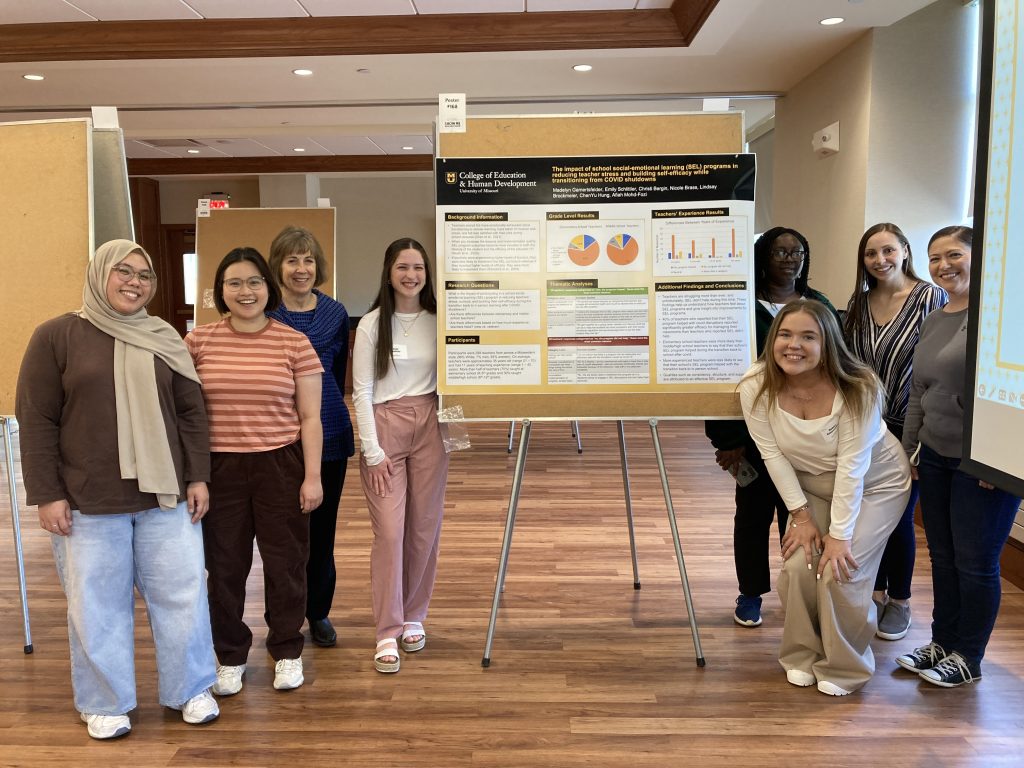
Prosocial behavior is the opposite of antisocial behavior – it is behaving in ways intended to benefit others, like being kind, helpful, polite, respectful, and cooperative. The Prosocial Lab conducts research on how adults help children become prosocial.
Prosocial Education refers to educators intentionally helping students become kinder with each other and more engaged in learning at school. Teachers find that they enjoy teaching more as students become more prosocial. The lab partners with other researchers, teachers, and agencies to provide professional development to teachers.
In the News
- Missouri program teaching prosocial skills expands to more classrooms and states
- Promoting prosocial behavior in the classroom and beyond
- Five key questions educators ask about SEL
- Prosocial Behavior Program is showing positive results in Missouri Schools
- Positive teacher-student relationships lead to better teaching
- Kindness works: Teachers’ helping behaviors related to better student relationships and academic confidence
- Time to change the stressful environment at schools: MU researchers could have the key | columbiamissourian.com
- Prosocial behavior improves student outcomes, reduces teacher stress and burnout
- Popular students may not always be the most well-liked, MU study finds
- MissouriNet: Popular students not always the most well-liked
- Forbes: The Secret to Being A Better Teacher? Be Kind To Your Students
- The Pros of Prosocial
vSchool Project

The vSchool project aims to develop and validate a school-friendly, game-based assessment of prosocial behavior for 4th–6th grade to be used by schools to measure effects of social-emotional learning interventions. vSchool is ED (IES)-funded and being developed by a transdisciplinary team of experts on prosocial development, psychometrics, the use of technology to measure social-emotional skills, and online game development. vSchool is currently in its development phase.
Learn about vSchoolProsocial and Active Learning (PAL) Classrooms
PAL Classrooms combines prosocial education with eMINTs training. 5th grade science and math teachers attend free PD sessions, a book study, and in-class coaching across a school year. Teachers learn how to teach with technology and use student-centered team learning, while also supporting students’ prosocial behavior so that teams function more harmoniously. The goals are that students are more prosocial, engaged, learn more and their teachers are less stressed, more confident and enjoy teaching more. PAL Classrooms is ED (EIR)-funded.
PAL Classrooms 2.0 (google.com)
Participate in PAL ClassroomsECHO Project – Middle School

ECHO: Prosocial and Positive School Climate – Middle School is a program to build middle school teachers’ capacity to promote prosocial (kind) behavior between students and maintain a welcoming classroom. It uses the ECHO telementoring model. Teachers attend free monthly professional development as a cohort for one academic year using Zoom. Teachers discuss real challenges in their classrooms with each other and with experts from the University of Missouri who present cutting-edge research. The goals are that students increase prosocial behavior and achievement test scores, while teachers increase self-efficacy and enthusiasm for teaching. This project is ED (EIR)-funded.
Participate in ECHO - Middle SchoolMath + Prosocial Education + Equity
Math+PE+E addresses the national need for increased student mathematics achievement, greater student prosocial behavior, and reduced inequities in mathematics achievement. Middle grades (6-8) math teachers will receive professional development in best practices in technology-based, equitable mathematics instruction for all students while promoting students’ prosocial skills, as they earn a Master of Education degree. In addition to building teacher capacity, we seek to increase students’ prosocial behaviors, interest in advanced math, and equitable academic achievement. A field-based, randomized-controlled study will investigate outcomes. Partners are UT-Arlington, MU, Ohio Univ, and Texas Instruments. Math+PE+E is ED (SEED)-funded.
More InformationThe Leader in Me Effectiveness Study
The Leader in Me (LiM) is a universal program facilitated by teachers and staff that emphasizes learning to live by principles in Covey’s “7 Habits of Highly Effective People.” Students are given meaningful leadership roles in the school and helped to grow their strengths. We conducted a mixed method study: (1) A case study of 4 diverse elementary schools, and (2) A matched comparison (using propensity score matching) of 117 LiM and 348 non-LiM schools using secondary state-wide data. We found that both students and teachers became more prosocial, teachers were re-energized about teaching, and students became more motivated, their attendance and achievement was modestly higher, and discipline rates were lower after their schools implemented LiM. We are currently conducting a follow-on quasi-experimental study of LIM.


